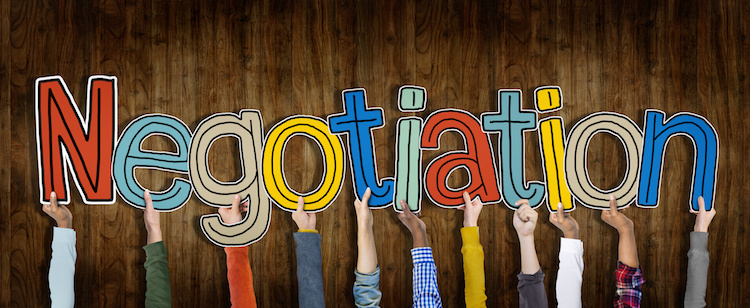What’s a BATNA and why do I need one?
The "Best Alternative To a Negotiated Agreement" dubbed a BATNA by authors Fisher & Ury. Why do you need one? If you are preparing to negotiate and you don’t know your alternatives you are more likely to agree to something you could regret.
Here’s a common example. You decide it’s time to replace your car, start looking at cars, and a salesperson approaches you. Her interest is to make a sale today for the most money possible. If you haven’t researched your options, you’re likely to spend too much money and make a choice you wish you hadn't.
So, how do you determine your BATNA?
First, brainstorm as many options as you can--don’t limit yourself. If you are negotiating a raise, alternatives to getting the raise include taking a different position at your company, taking a new job within the same industry, gaining new skills to make more money in your current job, training for a new career that pays more, staying where you are and taking a part-time second job, etc.
Next, narrow your options to those you would actually consider. It’s always better to have more than one BATNA if possible. It encourages you to negotiate assertively and it gives you more opportunities to walk away if needed.
Then, gather quality information about the options you’ve selected. The more you know, the more confident and empowered you will feel to make good choices. You are also less likely to be persuaded to make a poor choice.
I say quality because opinions are just that--personal beliefs. I’m amazed how many times mediation clients say, “well my best friend told me...” as if it were fact. If their best friend is an attorney giving advice on the law, I might give it some weight, but if Fred simply had a bitter divorce, he’s not an expert.
Finally, give some consideration to your range and your bottom line. We all make trade-offs in negotiation and in life. I might be willing to pay a little more if I can get heated seats in my new car. But I also know if the price goes above a certain point or the dealer tries to talk me into a financing option I am not comfortable with, I need to walk away.
And don’t forget to take the other person’s perspective into consideration. You’re more likely to succeed in a negotiation if both parties' interests are fulfilled.
If you need help becoming a better negotiator, a conflict coach can help you understand more about your strengths and weaknesses, learn new skills, and support you through the process. If you need help negotiating with someone else, a mediator can help by offering a structured process that surfaces the interests and needs of both parties.
Bobbie L. Dillon, M.S., helps people create Peace-Full Relationships--harmonious relationships where both people’s needs are met--as a trainer and conflict coach. Check out more resources at BobbieDillon.com. Follow her on Twitter or on LinkedIn.

